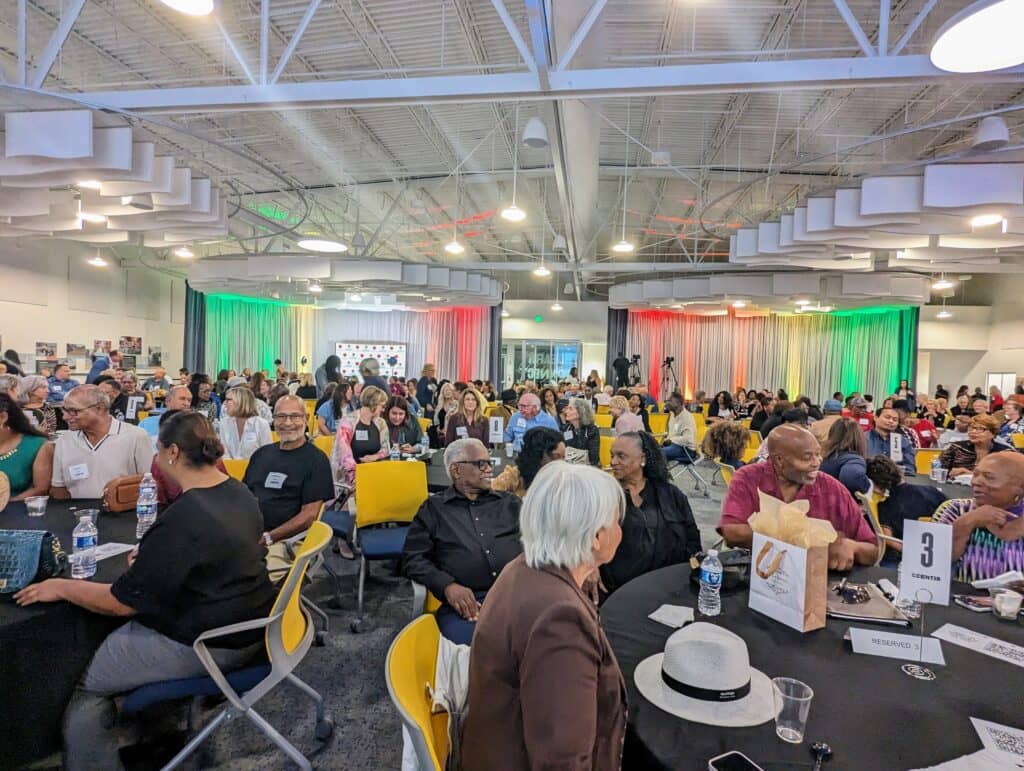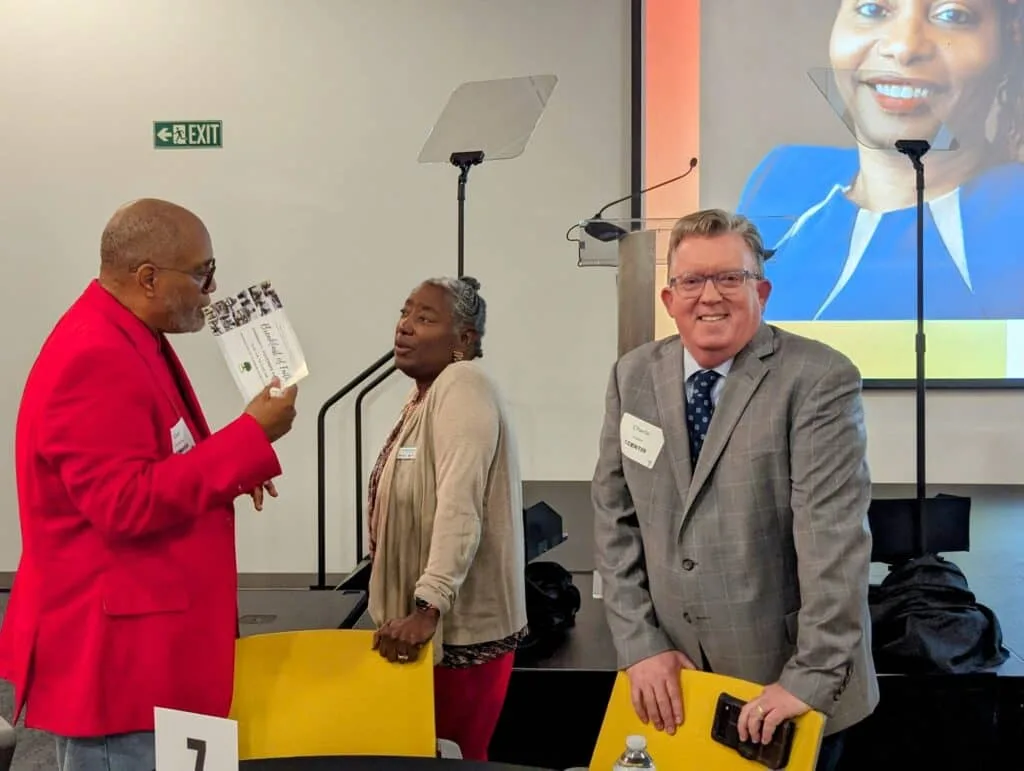Over 300 people celebrated Dr. Kanika Tomalin’s return to lead an organization she helped create a decade ago and her plans for St. Petersburg’s largest grantmaking foundation’s future.
The Foundation for a Healthy St. Petersburg held a “Full Circle Celebration” Nov. 16 for its new president and CEO at the Center for Health Equity. The date also represented the decennial anniversary of Tomalin becoming the city’s first Black female deputy mayor.
After lighthearted team introductions and a fireside chat, Tomalin got down to business. The fifth-generation St. Petersburg native concluded her keynote address by encouraging attendees to help “demystify diversity” and “set tables you control with enough seats for every voice.”
“The gaps we seek to close are centuries in the making,” Tomalin said. “Fortunately, we don’t need centuries – we just need the intentional work of this generation to make it better for the next.
“Systems change doesn’t happen overnight, but significant change can happen every day.”
Tomalin believes ensuring equitable access to healthcare can shrink those gaps and propel those changes. Data drives the Foundation’s work, and Tomalin began an impassioned speech with stark statistics.
She highlighted how the average life expectancy in the city’s upscale Snell Isle neighborhood is 82 years. Most predominantly Black residents in Campbell Park will not celebrate their 67th birthday.
“Roughly four miles apart, there’s a 16-year difference,” Tomalin emphasized. “It’s a canary in the coal mine of disparity.”


Over 300 people attended Thursday night’s event at the Center for Health Equity.
Tomalin also noted the city’s progress since the sale of the nonprofit Bayfront Medical Center – now known as Bayfront Health St. Petersburg – served as the Foundation’s seed funding. The nonprofit launched in 2013 and oversees $164 million in assets to promote health equity by advancing racial and social equality.
Tomalin joined the health system over 20 years ago, eventually becoming its vice president of strategic planning and public affairs. She noted that many former and current Bayfront officials were in attendance, and the organization, now under the Orlando Health umbrella, is still the Foundation’s most prominent funder.
Tomalin credited innovative opportunity creation, local leadership and evidence-driven collective empowerment for Black residents enjoying “record-setting progress.” She said the community’s poverty levels are at an all-time low, and post-secondary education, homeownership and income rates have significantly increased.
Despite those achievements, Tomalin said the earnings, homeownership and wealth divide between African Americans and their Caucasian counterparts have simultaneously widened. She added that the Foundation’s work “is as relevant and needed now as it’s ever been.”
“My journey has unfolded with a foot in many worlds,” Tomalin said. “It’s afforded me the understanding of all that must be made possible … for as many people as possible. The full circle we celebrate tonight is an ark of impact that glows like a halo over the power that fuels the work of this Foundation.”
She announced that the organization has enlisted historian Gwendolyn Reese to oversee the Griot Project. Tomalin said the in-development initiative will ensure the city never forgets prominent African-American legacies and foster an equitable future by celebrating the past.
Tomalin stressed that the Foundation would address social determinants that drive disparate outcomes through data and research. She said her team would promote healthy lifestyles and equitable healthcare access with a renewed focus.




From left: Carl Lavender, interim chief equity officer for the City of St. Petersburg; Bridgette Heller, CEO of the Shirley Proctor Puller Foundation; and County Commissioner Charlie Justice before the event.
Tomalin noted that local government, business and nonprofit leaders ensured people of color received over $1 million in economic and employment impact this year. She pledged to increase those efforts in 2024 and beyond by increasing the Foundation’s presence in community affairs.
That includes the Historic Gas Plant District’s $6.5 billion redevelopment project. Tomalin said the Foundation would work with the Tampa Bay Rays/Hines development team to ensure “equity’s omnipresent footprint” in an area once home to a thriving African-American community.
“Every detail – from walkability to lighting to the creation of inclusive greenspaces that seamlessly flow through adjacent neighborhoods (like Campbell Park),” she added. “From the readiness of our workforce to and ease of entrepreneurial access to education, healthcare and innovation, to the construction of a world-class Carter Woodson African American Museum.”
However, Tomalin said the community lacks the capacity to actualize the redevelopment’s theoretical opportunities. She said that underscores the importance of bolstering career readiness opportunities through engagement and partnerships.
Tomalin encouraged leaders to identify and promote greatness in people who may not realize their potential. She also urged attendees to become ambassadors for equitable change.
“The full circle of inclusion includes room for diverse perspectives and lived experiences … a critical element of our community’s brightest future,” Tomalin said. “You complete the circle with your actions every day.”


